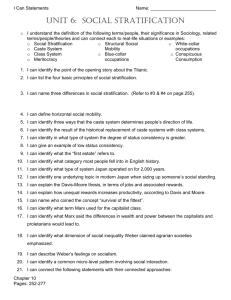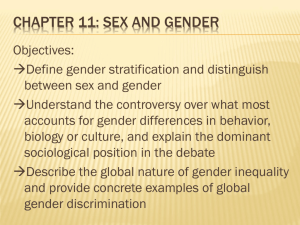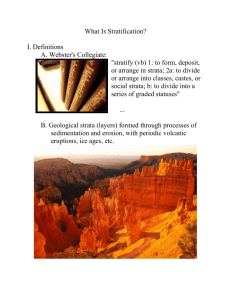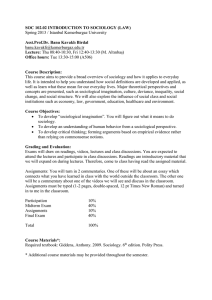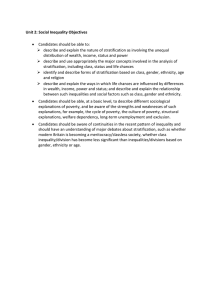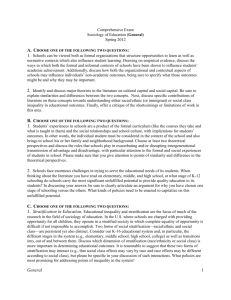classnotes#9
advertisement
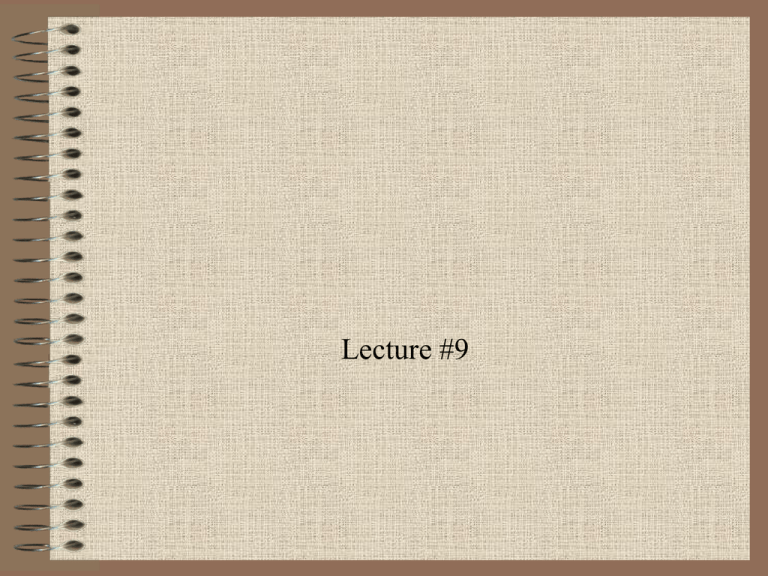
Lecture #9 Sociological Theories of Stratification/Inequality “Why are we stratified?” - Functionalism Conflict Theory Karl Marx Max Weber Sociological Theories of Stratification/Inequality “Why are we stratified?” Functionalism Social stratification and social inequality are “functional,” and thus “beneficial” to society in terms of its smooth and effective operation. Stratification and inequality are source of social order. Sociological Theories of Stratification/Inequality “Why are we stratified?” Conflict theorists “Functional” and “beneficial” to whom? Sociological Theories of Stratification/Inequality “Why are we stratified?” Conflict theorists A reflection of the unequal distribution of power in society and as a primary source of conflict and coercion. Stratification serves the interests of groups of people at the top. Sociological Theories of Stratification/Inequality “Why are we stratified?” Karl Marx 1818 –1883 Sociological Theories of Stratification/Inequality “Why are we stratified?” Karl Marx - ownership of “means of production” - the ability to purchase and control the labor of others. ↓ On the basis of these criteria, societies are divided into… “Bourgeoisie(or Capitalists)” “Proletariat(or Workers)” Sociological Theories of Stratification/Inequality “Why are we stratified?” Karl Marx Bourgeoisie, who owns “means of production,” can control Proletariat’s livelihoods. The rich tend to get richer, to use their wealth to create more wealth for themselves, and to act in ways that will protect their interests and positions in society. Workers are “exploited.” Sociological Theories of Stratification/Inequality “Why are we stratified?” Karl Marx Those in power have access to the means necessary to create and promote a reality that justifies their exploitative actions. “False (class) consciousness” Sociological Theories of Stratification/Inequality “Why are we stratified?” Max Weber 1864 – 1920 Sociological Theories of Stratification/Inequality “Why are we stratified?” Max Weber - Status “the differences between groups in the social honor, or prestige, which are accorded by others.” (p.254) Class/Status Closely related, but the one does not determine the other. Class: economically-based Status: life styles We are different We are also ranked (stratified). - Global inequality (Chapter 9) - Gender (Chapter 10) - Race/Ethnicity (Chapter 11) - Age (Chapter 12) Chapter 9: Global Inequality Countries are not merely different, but also stratified. Inequalities between countries “Developed” countries “Developing” countries “High-income” “Middle-income” “Low-income” Theories of Global Inequality Why are countries stratified? (p.278-)
